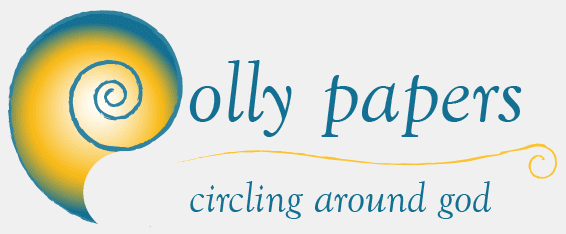A conversation last week with a good friend got me thinking about language, particularly, language about God. Already, in that first sentence, lies the heart of my dilemma. It’s about the word “God”. I use this attribution regularly to write about the One that is known with many names and no name. Yet the name “God” doesn’t sit well with my friend, and, I suspect, others who read these pieces. In truth, there was a period not long ago when I wasn’t able to utter the name, as it recalled too many childhood images of a stern, exacting, long-bearded man. For some reason, and I’m really not sure when this happened, that is no longer the case and so I am able to say and write “God” as my way to capture all the images and iterations, known and unknown, of the Mystery.
 Thinking on all of this, I am prompted to write today what will be the second installment of a five-part series, taking my cue from the basic rules of journalism: who, what, where, when and why… is God? Last week I explored the “where”; today I will attempt the “who.”
Thinking on all of this, I am prompted to write today what will be the second installment of a five-part series, taking my cue from the basic rules of journalism: who, what, where, when and why… is God? Last week I explored the “where”; today I will attempt the “who.”
With tongue in cheek a few years ago, I decided I would use the phrase “the deity formerly known as God”, paraphrasing the late artist Prince’s name for himself. Other words and phrases have included: Holy One, Great Spirit, Creator, Mother, Redeemer, Divine Spirit, Father, Goddess, Gracious and Merciful One, Ground of All Being or, my personal favorite, Shakespeare’s description of Cleopatra: Infinite Variety. I had a yoga teacher once who called it (him, her, them?) Griselda! Why not? Her choice is as good as any that there is no single name or phrase which can embrace the mystery. In the end, our Jewish sisters and brothers come the closest with Y*H*W*H, the unpronounceable.
The epigraph that I use for this blog comes from the poem by Rainer Maria Rilke:
I am circling around God, around the ancient tower,
and I have been circling for a thousand years,
and I still don’t know if I am a falcon, or a storm,
or a great song.
Rilke’s question is about himself: Who am I in relation to God? My question is about the other one in that relationship. Who is Rilke circling around? An ancient tower. Somehow that’s not enough for me. Like Rilke, I have been and still am circling around God and I want to believe whoever that may be is much more than a tower, which feels stone-cold, closed and lifeless. I believe, as Martin Buber wrote, that there is an “I-Thou” relationship with the Mysterious One. Personality, if not exactly personhood, is part of the “who.” A heart as big as the cosmos, a love as wide as infinite galaxies, a presence always with me, even when I am not aware. Perhaps this is because I am a believer in the man Jesus, who embodied all of that and more and who taught us: “This is what God is like.”

I don’t particularly like the word God. And it makes me think of an idea I had when I started teaching photography: Names do not describe. We humans like to name things to get a handle on them. It is useful, but when we think the name describes the thing we are missing something. I prefer to use no name, to keep open to the mystery of life, our world, the universe. As Iris Dement says in her wonderful song, “Let the mystery be.” Here’s a link to her singing it: https://www.youtube.com/watch?v=nlaoR5m4L80. If you can get past her nasal, shrill voice, she is wonderful. As my grandson Blake says about something we don’t understand. “It’s a mystery.”
Thanks for that link, Ross. I rather liked her country western delivery.
To me God has been with me since I was a small child…who you can turn to at any moment, who makes you never alone…who speaks to you in your conscience when you are quiet enough to listen…God is love, sharing all of his beautiful creation with us but also showing us the other side. I have more difficulty praying to Jesus, Gods human embodying rebel profit who taughtn us to pray to God. When do all of these thoughts enter our beings? MaryJane
Comments are closed.